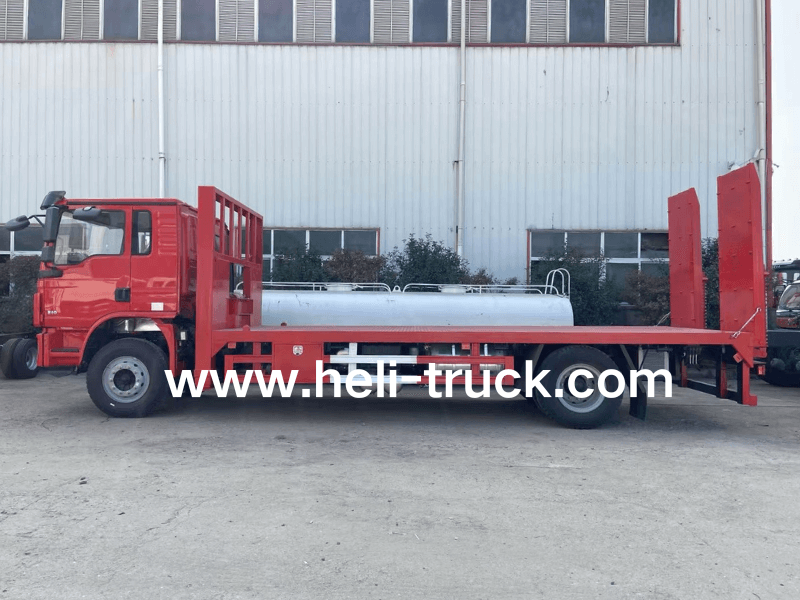Introduction
Waste management is a critical aspect of urban living, and the efficient collection and disposal of garbage are essential for maintaining clean and healthy environments. Garbage compactor trucks have long been a staple in waste management operations, helping to compress and transport large volumes of waste to disposal sites. In recent years, advancements in technology have led to the development of garbage compactor trucks with real-time tracking capabilities, offering a new level of efficiency and accountability in waste collection and disposal processes.
This article explores the evolution of garbage compactor trucks, the benefits of real-time tracking technology, and the impact of these advancements on waste management practices.
Evolution of Garbage Compactor Trucks
Garbage compactor trucks, also known as compactors or trash compactors, have been a fundamental tool in waste management for decades. These specialized vehicles are equipped with a compactor mechanism that compresses waste materials, allowing for more efficient collection and transportation. The first garbage compactor trucks were introduced in the early 20th century, revolutionizing waste collection processes in urban areas.
Over the years, garbage compactor trucks have undergone significant advancements in design and technology. Modern compactors are equipped with powerful hydraulics systems that can compact waste at high pressures, increasing the vehicle's capacity and reducing the number of trips required for collection. These trucks come in various sizes and configurations, from small rear-loading compactors for residential areas to large front-loading compactors for commercial and industrial use.
Real-Time Tracking Technology
Real-time tracking technology has become increasingly prevalent in various industries, including waste management. Garbage compactor trucks with real-time tracking capabilities are equipped with GPS devices that allow for continuous monitoring of the vehicle's location, speed, and status. This technology enables waste management companies to optimize routes, improve scheduling, and monitor the performance of their fleet in real time.
One of the key features of real-time tracking technology is the ability to track the fill level of the compactor. Sensors installed in the compactor mechanism can provide accurate data on the amount of waste collected, allowing operators to optimize collection routes and schedules based on actual demand. This data-driven approach helps to reduce fuel consumption, minimize vehicle wear and tear, and improve overall operational efficiency.
Benefits of Garbage Compactor Trucks with Real-Time Tracking
The integration of real-time tracking technology in garbage compactor trucks offers a wide range of benefits for waste management operations:
1. Improved Operational Efficiency: Real-time tracking allows for better route planning and scheduling, leading to increased productivity and cost savings. Waste management companies can identify inefficiencies in their collection routes and make data-driven decisions to optimize their operations.
2. Enhanced Customer Service: With real-time tracking, waste management companies can provide accurate and timely information to customers regarding the status of their waste collection services. This level of transparency helps to build trust and improve customer satisfaction.
3. Reduced Environmental Impact: By optimizing collection routes and schedules, garbage compactor trucks with real-time tracking technology can reduce fuel consumption and greenhouse gas emissions. This environmentally friendly approach aligns with sustainability goals and regulations.
4. Improved Safety and Security: Real-time tracking technology enhances the safety and security of garbage compactor trucks and their operators. see this here can monitor vehicle locations in real time, respond quickly to emergencies, and ensure compliance with safety regulations.
5. Data-Driven Decision Making: The data collected through real-time tracking can be analyzed to identify trends, patterns, and opportunities for improvement. Waste management companies can leverage this information to make informed decisions and optimize their operations for maximum efficiency.
Impact on Waste Management Practices
The adoption of garbage compactor trucks with real-time tracking technology has had a significant impact on waste management practices worldwide. These advancements have transformed traditional waste collection processes and introduced new opportunities for innovation and efficiency in the industry.
1. Smart Waste Management: Real-time tracking technology enables waste management companies to implement smart waste management solutions that leverage data analytics and automation. By monitoring fill levels, optimizing routes, and predicting waste generation patterns, companies can streamline their operations and reduce costs.
2. Improved Resource Allocation: Real-time tracking allows waste management companies to allocate resources more effectively, ensuring that collection routes are optimized based on real-time demand. This approach minimizes unnecessary trips and maximizes the efficiency of the fleet.

3. Regulatory Compliance: Real-time tracking technology helps waste management companies comply with regulatory requirements related to waste collection and disposal. By maintaining accurate records of collection activities and monitoring vehicle performance, companies can demonstrate accountability and transparency to regulatory authorities.
4. Public Health and Safety: Efficient waste collection and disposal are essential for maintaining public health and safety in urban areas. Garbage compactor trucks with real-time tracking help to reduce the risk of waste overflow, illegal dumping, and other sanitation issues that can pose health hazards to communities.
5. Sustainable Practices: Real-time tracking technology supports the adoption of sustainable waste management practices by promoting resource efficiency, reducing emissions, and minimizing environmental impact. Waste management companies can use real-time data to implement green initiatives and contribute to a cleaner, healthier environment.
Conclusion
Garbage compactor trucks with real-time tracking technology represent a significant advancement in waste management practices, offering increased efficiency, accountability, and sustainability in waste collection and disposal processes. By leveraging real-time tracking capabilities, waste management companies can optimize their operations, improve customer service, and reduce their environmental footprint.
As technology continues to evolve, the integration of real-time tracking in garbage compactor trucks is expected to become standard practice in the waste management industry. These innovations will drive further improvements in waste collection efficiency, resource allocation, and regulatory compliance, ultimately shaping the future of waste management towards a more sustainable and environmentally friendly direction.
